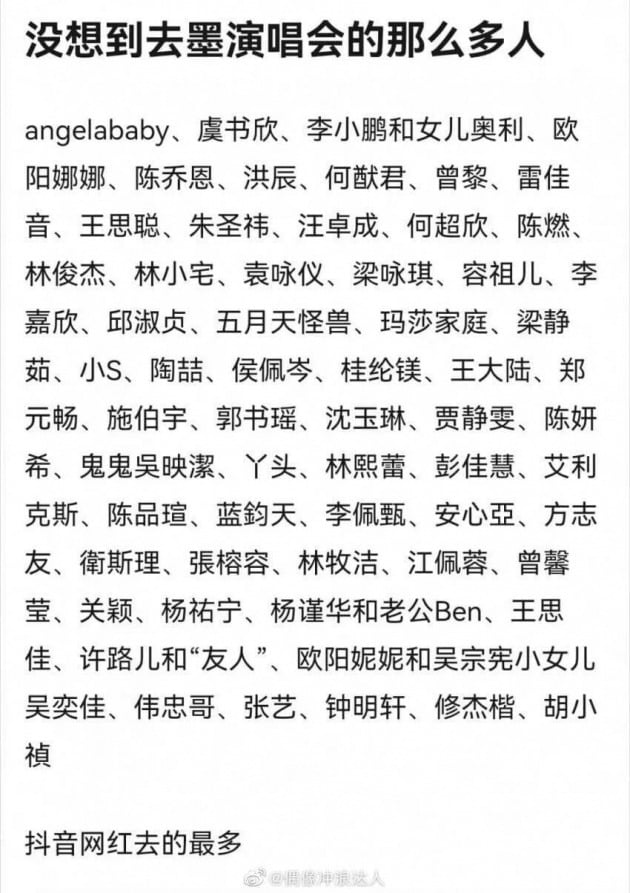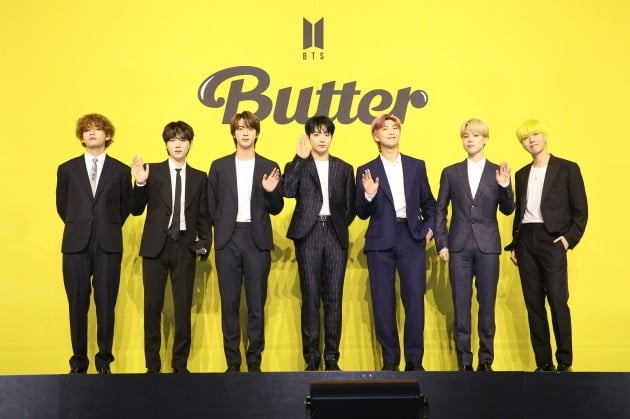ENTERTAINMENT
Is Blackpink the reason for the 'witch hunt'? Jealousy of China's K-culture
Weibo reveals the list of attendees for Blackpink's concert in Macau
"Do Chinese people go to see Korean celebrities?"
The culture of promoting anti-Korean culture continues... It is premature to lift the Korean-Korean law
"Do Chinese people go to see Korean celebrities?"
The culture of promoting anti-Korean culture continues... It is premature to lift the Korean-Korean law

We delve into issues across the entertainment industry. Let's talk about the causes of controversy and issues, and what the voices of the entertainment industry are.
Anti-Korean sentiment in China continued. Some Chinese people raised their voices of criticism to those who visited the site of the recent Black Pink concert. Why do you consume the stage of Korean groups and Korean culture? In the atmosphere of the lifting of the Korean-Korean law, China's illogical hatred toward Korea was deeply rooted.
A list of Chinese celebrities and influencers who visited the BLACKPINK concert site was released on Weibo, a Chinese social networking service (SNS). In addition, a 'boycott declaration' to stop consuming them followed.
BLACKPINK held the world tour ‘BORN PINK’ in Macau, China on the 20th and 21st. Just looking at the level of interest, you can know the popularity of Blackpink in China. The concert was sold out at the same time as the ticket reservation. Scaling tickets were also traded at more than eight times the base price.
Apart from this, there are also those who are jealous of popularity. In fact, he left a baptism of bad comments to celebrities who actually went to see Blackpink. In particular, Chinese movie star Angela Baby was criticized for saying, "Do Chinese people go to see Korean celebrities?" Cheng Xiao, a former space girl, also came under criticism.

As the Chinese market that consumed K-pop in the past closed, the entertainment industry turned its eyes to the US and Europe. After that, a 'Global No. 1 group' called BTS was formed, and many singers left many achievements, such as being on the Billboard.
Crisis was an opportunity. It proved K-pop's competitiveness in another market. The gaze that stayed in Asia moved to Europe or the Americas. After repeated failures and successes, K-pop has proven itself as a cultural powerhouse. China, which closed its doors, has become a structure where it has no choice but to listen to K-pop in hiding.
How can we stop the growing influence of K-pop? Even if China cracked down, it could not stop its people's loyalty to K-pop. As a result, the problem of illegal leakage of Korean contents in China has become serious. Domestic works such as 'The Glory', 'The youngest son of a conglomerate family', and 'The Squid Game' are also highly popular in China. However, in China, OTT is not officially supported. After all, Chinese people are consuming Korean content through illegal distribution.

Opinions are already gathering in favor of lifting the Korean-Korean law. However, 'anti-Korean sentiment' prevails among some Chinese. It is necessary to resolve deep-seated emotions even for Korean idols' activities in the Greater China region. The subject must be Chinese. If there is no change from within China, the lifting of the Korean-Korean law will only become a 'good apricot'.
Reporter Yoon Jun-ho, Ten Asia delo410@tenasia.co.kr



